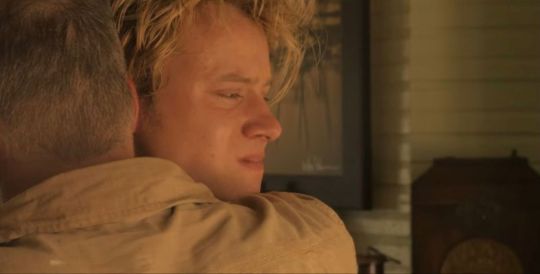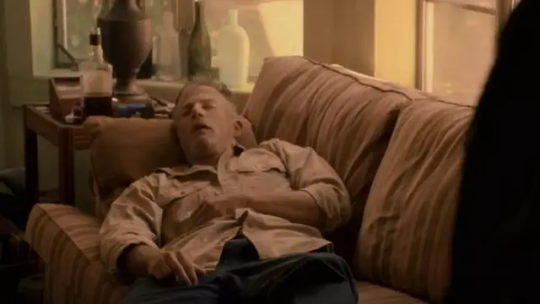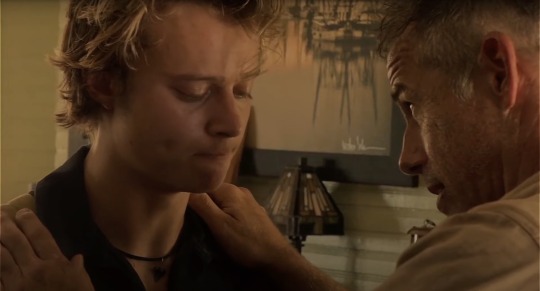#Compensation
Explore tagged Tumblr posts
Text
Minho, frustrated: You know what, fuck this, I deserve nice things Minho: *picks up Jisung* Minho: I'm taking him as compensation
#minsung#skz han#skz han jisung#skz jisung#han#jisung#han jisung#stray kids han#stray kids jisung#stray kids han jisung#lee know#lee minho#minho#skz minho#skz lee know#skz lee minho#stray kids minho#stray kids lee know#stray kids lee minho#stray kids#skz#stray kids incorrect quotes#stray kids incorrect#skz incorrect quotes#incorrect skz#compensation#frustration#not kidding#dead inside
214 notes
·
View notes
Text
"Well, if I can be of any help to the Times--"
"We won't be bribed, either," said William. He knew he was galloping in among the sharpened stakes here, but he'd be damned before he'd be patronized.
"Bribed?" said Vetinari. "My dear sir, seeing what you're capable of for nothing, I'd hesitate to press even a penny into your hand."
Terry Pratchett, The Truth
#william de worde#havelock vetinari#the truth#discworld#terry pratchett#the times#bribery#government#negotiation#favors#help#patronising#volunteer#free#compensation#idealist#journalist#capable#hesitation#well i'll be damned#my dear sir
338 notes
·
View notes
Text


wow. "chiquita" and "death squads" are not things i expected to see in the same sentence.
#chiquita banana#human rights abuses#paramilitary death squad#florida jury#earthrights international#autodefensas unidas#colombia civil war#united fruit company#1928 strike#colombian military#corporate accountability#chiquita lawsuit#compensation#human rights violations#worker rights#historical violence#international law#jury verdict#colombian workers#american corporation
517 notes
·
View notes
Text
First Nations people harmed by Canada's underfunding of on-reserve child welfare services can now apply for compensation, as the claims process officially opens in a $23.4-billion class-action settlement. Starting Monday, people removed from their homes on reserve or in the Yukon and placed in care funded by Indigenous Services Canada between April 1, 1991, and March 31, 2022, are eligible to make claims, and so are their caregiving parents and grandparents.
Continue reading
Tagging: @newsfromstolenland
#first nations#child welfare#welfare#compensation#settlements#cdnpoli#canada#canadian politics#canadian news#canadian#yukon
126 notes
·
View notes
Text
NEW POST!
I Took 40 Days of Vacation Time in 2024 and I Feel No Remorse
And guys, I'm real proud of this one. I researched the fuck out of the physical and psychological effects of overworking and the benefits of taking vacation. Which is so much work to just convince myself not to feel bad about taking a break!
You can read it, watch it, or listen to it at the link above.
#burnout#career advice#compensation#health and wellness#jobs#paid time off#rest#vacation#vacation time#workplace benefits
108 notes
·
View notes
Text
Technically speaking.
periods are just you bleeding profously and being in agonizing pain. and everything feels like its on fire right?
Where else is there blood and pain and screaming and fire??
HELL!
TECHNCIALLY. My period week is me giving birth to satans child.
SO!
I propose a petition for Satan to pay child support to all women in the form of snacks and drinks. as compensation.
#lgbtq+#friends#respect women#beautiful women#women#womans#periods#period cramps#menstruation#cramps#menstrual cycle#satan#hail satan#but also satan hail me#compensation#womens health#girl math#im just a girl
27 notes
·
View notes
Text
Anon wrote: I am an ESTP, 17y. Even though I consider myself as an ESTP, I’m confused by certain aspects of my thought process that I associate with Fi. More specifically, I’m puzzled by my emotional reactions to certain things, which are quite hard to describe — I don’t fully understand their causes or nature.
I suppose it’s worth mentioning that, in terms of moral development, I’m at a stage where I try to maintain the approval of others. I believe this stems from emotional insecurity or, more precisely, a sense of inadequacy, which I attribute to my upbringing: I was a spoiled child, as my parents did everything for me and, as a result, failed to instill independence and a strong work ethic.
After comparing myself to others, I concluded that I lagged behind my peers in terms of emotional development and maturity. By this, I mean that I was somewhat aggressive (I infer this from the emotional harm I caused to some friends), stubborn, attention-seeking, and had a sense of superiority — I wanted to be better than others. I was also somewhat cowardly and, therefore, overly accommodating in social situations (because I didn’t know how to behave properly and was afraid of embarrassing myself).
I tried to correct these traits by aligning myself with public morality and seeking others’ approval. However, here lies a paradox: I was attempting to grow, but my motivation was the desire to be better than others, so every approval I received became proof of my superiority. In this sense, I equated intelligence with maturity, and thus viewed approval as evidence of my intellect. Later, I began to recognize this paradox, though I didn’t try to resolve it — I simply accepted it as a given, even though I worried that it might make my judgment biased or unreliable.
Why am I telling this? Because I believe it contributes to the “strangeness” of my thought process. I experience odd emotional reactions — physically unpleasant, strangely enough — when I see people doing things purely for profit or acting in a shallow, insincere way. I suppose the closest word for this feeling is resentment.
Why do I associate this with my moral development? I believe these reactions stem from my efforts to follow societal values and norms, which leads me to judge others based on those standards. However, this judgment feels automatic and involuntary — not something derived from conscious reasoning.
So, I wonder: are these reactions simply ingrained social values, or could they be better explained by the Fi function? In other words, might Fi drive me to maintain alignment between my behavior and personal identity, values, and preferences — such that insincerity or dehumanizing behavior triggers emotional resistance?
--------------------
You've described your thought process well enough that I understand the patterns. I don't believe any of it points to Fi, though I get why you would consider the possibility. There is actually a very distinct absence of Fi all along the way, from childhood until now. Realistically, there's no way auxiliary Fi would arise so suddenly and so late, even if you were to experience a huge life-changing event (which you haven't).
Even when people aren't very subjectively aware of their auxiliary function due to delayed development, from an objective observer's vantage point, evidence of the function will still appear to permeate judgment and decision-making. But there is no such underlying evidence of Fi in your case. There is for Ti, though.
A lot of people suffer from self-esteem issues, so it isn't specifically a personality type problem. However, type tends to make an appearance in how people choose to respond to low self-esteem, which is one factor I often examine when assessing type.
A common response to low self-esteem is compensation:
Compensation is a defense mechanism whereby a person attempts, usually unconsciously, to address a perceived weakness, flaw, or deficiency by "growing" in a way that serves to mask their insecurity about it.
Overcompensation happens when people strive too hard for a sense of superiority in one facet of life in order to cover up a sense of inferiority in some other facet.
By my understanding, compensation is a reaction to low self-esteem (feeling bad about yourself) and overcompensation extends beyond self-esteem into low self-worth (not feeling "good enough", e.g., to deserve acceptance and love).
In order to possess the self-confidence necessary to succeed in life, one needs to build up life skills, skills that help one meet challenges and adapt appropriately to changing circumstances. Life challenges and circumstances are quite diverse, so life skills are also quite diverse. To give you a bigger picture view of life skills and why they require lifelong commitment to improve, they include things such as:
analytical skills
caregiving skills
civic literacy skills
communication skills
community building skills
conflict resolution skills
creative thinking skills
decision making skills
diet management skills
emotional regulation skills
financial literacy skills
home maintenance skills
housekeeping skills
leadership skills
media literacy skills
networking skills
organization skills
planning skills
problem solving skills
productivity skills
relationship skills
research skills
self-care skills
self-directed learning skills
self-expression skills
stress management skills
teamwork skills
technological skills
time management skills
Why is over/compensation unhealthy? Mainly because it is a distraction that doesn't address the real underlying problem. Using your case as an example, you felt inadequate due to the fact that your upbringing didn't prepare you to succeed in life on your own. What your parents did is not your fault, but now you have a problem to deal with. How should one respond to this problem? Logically, one ought to pick up the knowledge and skills that one missed out on learning earlier in life as soon as possible. Doing this would gradually boost independence and self-esteem in a healthy way.
Many people don't know that throughout the history of psychology, "intelligence" has always been a controversial concept and very difficult to define properly. In the most basic terms, intelligence is the ability to learn new concepts in a timely manner and apply them effectively. From this perspective, increasing your skillfulness through learning and improving life skills is a legitimate expression of intelligence. A truly intelligent person is humble, in that they know what they don't know and then work to fill in the gaps appropriately. The notion of superiority/inferiority never enters the picture.
The "intelligence" you speak of doesn't seem to bear any resemblance to the above, does it? For some reason, you linked the concept of intelligence to social approval and feelings of superiority. Social perception and subjective feelings are not reliable measures, are they? Social perception changes with the times. For example, what was once socially acceptable becomes socially unacceptable a mere ten years later. Feelings can be fleeting and are not always an accurate representation of reality. For example, today you feel great because you got a good night's sleep, but tomorrow you feel terrible because you ate a bad dinner the night before.
When you stake your personal identity on murky things such as social perception and subjective feelings, don't be surprised that your existence eventually becomes very unstable. Mental instability creates phenomena such as intrusive thoughts, weirdly intense feelings, and inexplicable mood swings. And then a lot of mental energy gets wasted trying to manage instability, energy that could otherwise be spent on learning and growth.
To put it bluntly, you were creating an illusion of intelligence based on appearances rather than expressing genuine intelligence, unconsciously believing that compensation would cure low self-esteem. But relying on other people's validation to feel good about yourself is a problem because it puts you forever in the position of a passive victim, always at the mercy of external opinions, always reacting from behind. Is it possible to become a truly independent person by taking this path? Quite the opposite, taking this path is the road to perpetual dependency and, thus, chronic low self-esteem.
When people engage in over/compensation, they're not actually addressing the most pressing skill deficits (long-term solution) but, rather, merely trying to alleviate negative feelings such as shame or resentment (short-term bandaid). Best-case outcome is that their skills never improve and personal growth stagnates. Worst-case outcome is they pick up bad habits that increase the chances of mistakes and failures in life, such as putting ever more energy into keeping up appearances and neglecting actual growth.
While you were correct to emphasize the notion of intelligence, and your desire to grow in that direction came from a good place, the method you chose was ultimately unhealthy and could even become self-destructive. Basically, you calculated wrong because you didn't know any better, and I hope that my answering this question for you helps you to know a bit better. For what it's worth, the particular method of compensation you chose for responding to low self-esteem is consistent with tertiary Fe loop patterns that result from underdeveloped auxiliary Ti.
At this point in your life, you are almost an adult, so the call to independence is at its loudest. You have a choice to make: Are you going to choose the right means to become a truly capable and independent adult? Or are you going to keep relying on childish tricks and games to fool yourself into thinking you're smarter than you really are? If you keep choosing the latter, your life will eventually be dominated by fear of being exposed as a fraud or imposter.
If you're going to keep relying on what you call "public morality", you're going to keep running into uncomfortable contradiction after uncomfortable contradiction. Why? Because the elevation of public morality as the ultimate moral standard is problematic. Public morality is a fuzzy and transitory concept, so it cannot be any kind "ultimate" standard. However, public morality does have legitimate usefulness in terms of societal cohesion and advancement, so it should not be entirely dismissed, either. The issue is whether you eventually have enough intelligence to apply the concept more appropriately.
These disturbing "feelings" you're describing are related to the emergence of your own personal moral conscience, which is a vital step in moral development for all people. Moral development is a separate matter from type development, though they intersect at times. Becoming an adult should include developing an independent moral point-of-view, otherwise, you will always be easily tricked and manipulated by external forces.
And when personal values and public morality collide, what are you going to do? You need critical thinking skills to work out the conflict in the best way, which should be part and parcel of Ti development. If you are anything like other ESTPs, your line of inquiry is heading in the wrong direction towards Fi perhaps because you are unconsciously trying to shirk the responsibility of thinking more deeply on such matters? If you did think deeply, it would seriously interfere with the old Fe loop compensation strategy, and then life would become much more complicated and threaten you with Ni horrors?
Deep down, auxiliary Ti is trying to inform you that not every public moral stance is correct, reasonable, or defensible. The reason you're starting to see a problem out there is because it reflects a problem inside you, with your way of thinking that you just copied from the outside. Essentially, Ti is the voice that tells you when your thought process is stupid and in need of correction. It urges you to probe a little deeper and develop a more independent, critical, skillful, nuanced, sophisticated, substantive, and well-reasoned way of understanding issues and tackling problems. Will you listen to it?
#estp#auxiliary ti#fe loop#morality#moral development#intelligence#life skills#self esteem#self worth#compensation#overcompensation#independence#ask
21 notes
·
View notes
Text
“All of my work is with educational distributors like Women Make Movies, Third World Newsreel, and Cinema Guild. If those institutions didn’t exist, my films would have been lost, so to speak, because as a filmmaker, I don’t want to have to deal with doing invoices, or whatever college or community group is wanting to show it,” said Davis. “I could keep being on the creative side of filmmaking, and these organizations really saved my work, and the work of so many filmmakers because they existed, and they reached out to those audiences who wanted to see the film.”
#Compensation#Zeinabu irene Davis#women make movies has honestly been preserving films by women that would otherwise go totally unseen#zeinabu was so right to call them out i’ve been watching films from them for years
33 notes
·
View notes
Text
For National Zookeeper Week, it would be interesting to theoretically message or email a local or frequently visited zoo and request as a regular patron that keepers be compensated appropriately for the work they do.
Politely, of course, since those the people monitoring public facing accounts are just the messenger.
Kind of important for people who take care of highly endangered animals to be able to afford rent and food, after all, without having to work multiple jobs.
Might have an interesting impact.
Theoretically.
#national zookeeper week#zoos#living wage#compensation#pay people what they’re worth#sanctuaries count too!#any zoological care or exhibition facility
450 notes
·
View notes
Text
JJ Maybank character analysis
Luke Maybank and the unhealthy dynamics of parentification

What is parentification?
Parentification is a role reversal where parents are emotionally unavailable to provide support to the child typically due to their own problems often caused by alcohol or drug addiction or a mental illness. The child is forced to take care of themselves and take responsibility of the parent. Parents who are emotionally unavailable might also put down their children, contributing to a lack of self-esteem and increased stress for the child. This unavailability leaves the child without the necessary emotional guidance and stability.
The relationship between JJ and Luke Maybank
Luke is a single father. He is drinking and addicted to the prescribtion drug "Ambien", also known as a Z-drug. He is neglectful and abusive, failing to offer the emotional backing that JJ needs.

Luke Maybank is addicted to sedatives
Until about the third episode of the first season, we don't learn much about JJ Maybank's abusive family background. The first time we get a glimpse of his father is when Luke Maybank is exiting Barry's house, where he possibly went to get drugs or being involved in other shady activities. We also learn, that Luke Maybank lost his job at the salvage yard because he turned up drunk for work.
In Season 1, Episode 3, JJ Maybank and his friends visit the salvage yard to steal an underwater drone. During this scene, JJ concocts a lie about his father to distract the security guard, crying that his father "was gonna hit him again" if he wouldn't finish a certain task for him. The viewer is left wondering if there is some truth in his lie.
In Episode 5, father and son are on screen together for the first time in a dramatic scene, which intensity shocked many viewers. Beforehand, JJ Maybank was portrayed as funny, reckless and rebellious. There were no actual signs that he could have really been the victim of such vicious domestic violence as portrayed in this Episode.
In the scene Luke Maybank picks up his son JJ from the police station. As soon as they got into the car, Luke's entire rage is suddenly unleashed on JJ as he brutally beats him up. The mistreatment continues at home, where Luke verbally abuses his son mercilessly, possibly being under the influence of prescribtion drugs and alcohol. Meanwhile JJ locks himself in his bedroom. He is badly bruised and anxious, visibly traumatized and shaken by his father's actions.

"How you gonna get that money back, huh? By sittin' around doin' nothin'? I'm gonna tell you right now, you are a worthless piece of shit! Your Momma knew." (Luke Maybank, Season 1, Episode 5).
But physical abuse only being one possible hallmark of parentification. Parentification mainly involves overstimulation in parent-child interaction, where the focus is strongly on the parent's emotional needs. A strong indicator for JJ being parentified is, that he only feels valuable when fulfilling his father's needs. He really tries to please his father, desperately longing to "earn" just a small moment of parental kindness.
When he steals money from Barry's drug shack to pay for his restitution, he is even willing to jeopardize his friendship with the Pogues, just to fix things with his father.
At first, Luke gratefully accepts the money. JJ is shown beaming with relief and happiness over his father's praise and appreciation. But soon after Luke makes it clear that he doesn't want to use it for the restitution to help his son. He argues that the money was his to spend because JJ had already "cost him so much".
Luke instills guilt in JJ by blaming him for his misery (Season 1, Episode 7)
With that being said, Luke twists the fact that it is actually his paternal duty to provide for JJ's basic needs. Instead, he manipulates JJ by making him feel responsible for financial burdens, further solidifying JJ's role as a caregiver.
When JJ objects and takes his money back, his father beats him again. This time, JJ fights back, ultimately overpowering his father, pinning him to the ground. JJ is about to possibly hit and kill him with an object, but at the sight of his father being defeated he breaks down in tears, heartbroken and frustrated about his father's repeated rejection towards him and possibly feeling guilty and ashamed about having to defend himself like that against his own father. As JJ realizes how weak his father is, he might have also felt uncomfortable and confused with the sudden power he has over him. Notably, that particular scene also visualizes the unhealthy role reversal between father and son.

"You gave me nothing. You gave me nothing but a shitty life. All you ever did was try to scare me. But guess what? I am not scared of you anymore!" (JJ Maybank, Season 1, Episode 7)
The internal struggle between longing for parental affection and dealing with the reality of his father's behavior becomes clearer in Episode 10 when JJ tries to steal the key to Luke's boat, the "Phantom".
As JJ is about to take the key off his sleeping father, Luke surprisingly wakes up in a changed demeanor. He apologizes to his son, not without shifting part of the blame onto JJ, saying: "You remind me of your mother".

"I know I'm hard on you sometimes. But sometimes I see your mother in you. And it get's me a little tweaked, you know?" (Luke Maybank, Season 1, Episode 10)
Although Luke comes across sincere and apologetic in this moment, he actually refuses to take any responsibility for mistreating his son. Worse than that, he shifts the blame onto JJ's mere existence and heritage. This justification for his anger issues is another form of abuse and emotional manipulation.
Additionally to that, Luke Maybank repeatedly brings up JJ's missing mother and his frustration about her, with complete disregard for his son's feelings for her. He never considers whether JJ loved his mother, if he misses her, or if JJ himself is hurt or confused by her disappearance. He focuses only on his own pain and frustration, completely ignoring his sons feelings who must navigate complex emotions and family dynamics all by himself.
JJ finally accepts his father's attempt to hug him because he deeply craves for his approval and love. In doing so you can see him desperately trying to push down his emotions and unsuccessfully holding back his tears. The intimate moment is interrupted when Luke, under the influence of his drugs, collapses back on the couch sleeping, allowing JJ to think clearly again and finalise his mission of taking the key of his father.
Another instance where the role reversal becomes very clear is when Luke JJ helps his dad to escape to Yucatan in Season 2, Episode 8. After they share an emotional farewell on the boat, JJ gives his father some money for the journey and secretly disposes the pills fueling Luke's addiction. These actions are another example of JJ routinely stepping into a caretaker role, which traditionally belongs to the parent.

Luke Maybank pressures his son into helping him for the last time (Season 2, Episode 8)
JJ stays behind, relieved that his father cannot harm and manipulate him anymore. But his hopes are fading that he will ever change. JJ is left with the growing certainty that he will, despite his relentless efforts, never be able to have the unconditional love and acceptance he craves for. It is questionable if JJ will ever give up seeking his father's love and acceptance, but due to his personal growth in the last three season it becomes clear that he will no longer fight for it to the point of self-sacrifice.

Luke Maybank leaves his son (supposedly) for good in Season 2, Episode 8
#jj outer banks#jj obx#rudy pankow#john b routledge#chase stokes#obx#jj maybank#parentification#character analysis#luke maybank#compensation#obx s1#obx s2#control issues#outer banks#emotional abuse#emotional abandonment#no contact#psychology#parental issues#parentalalienation#daddy issues#narcissistic abuse#child abuse#rafe obx#analysis#character work#drug abuse#emotional unavailability#childhood trauma
102 notes
·
View notes
Quote
People who are not blessed with the ability to make others laugh compensate for that by saying (or trying to say) things that are profound.
Mokokoma Mokhonoana
#quotes#Mokokoma Mokhonoana#thepersonalwords#literature#life quotes#prose#lit#spilled ink#ability#able#aphorism#aphorisms#bless#blessed#blessing#blessings#comedian#comedians#comedy#comic#comics#compensate#compensation#gift#gifted#gifts#humor#humour#insight#insightful
25 notes
·
View notes
Note
Since you jump studios so often, approximately how much more (or less) are you making compared to peers you have worked with of comparable experience/skill that stuck to one studio?

I honestly don't know. There are very few people who have stuck with a single employer for their entire career and compensation still isn't super comfortable water cooler conversation. I can tell you that I have gotten the biggest bumps in both compensation and title by changing jobs - the amount I gained in salary from my last job to my current job would have taken nine years of raises to match.

I will point out that the most relevant factor to salary and compensation in our industry appears to be what studio you work for. I can tell you that my starting salary at my current studio was $180k. While I was searching last, one studio told me their maximum was $140k, another studio offered $172k, a third studio offered $175k, and I was even told by one recruiter that their starting pay for my experience and field was $225k.

Obviously the situation changes significantly over time - nowadays it is probably lower due to the increased number of devs looking for work and the relative rarity of job openings allows hiring managers to be more selective. That said, overall compensation is one of those things that really depends on the specific employer and how their pay structure works. Big studios and big publishers tend to pay better because they can. Smaller studios, of course, have smaller budgets and pay less.
[Join us on Discord] and/or [Support us on Patreon]
Got a burning question you want answered?
Short questions: Ask a Game Dev on Twitter
Short questions: Ask a Game Dev on BlueSky
Long questions: Ask a Game Dev on Tumblr
Frequent Questions: The FAQ
19 notes
·
View notes
Text
Love being an accidental problem cuz I dunno how TO SAY NO
I owe sooo many ppl emotional compensation(*´ー`*)
6 notes
·
View notes
Text

15 notes
·
View notes
Text
I Took 40 Days of Vacation Time in 2024 and I Feel No Remorse
How many vacation days did you take this year? How many does your employer allow you to take? Did you work through illness and burnout because you didn’t have enough paid time off to rest and recuperate? Did you skip meaningful events with your family? When was the last time you took an actual vacation from your job? Today we’re talking about vacation time, or paid time off (PTO). It’s the…
#burnout#career advice#compensation#health and wellness#jobs#paid time off#rest#vacation#vacation time#workplace benefits
9 notes
·
View notes
Text
#human resources#Amazon#employers#lay off#layoffs#reality#gaslighting#performance improvement plan#pip#performance improvement#employees#employed#job security#corporate#corporate bullshit#performance review#millennials#lessons#lesson#take notes#pay attention#life#life lessons#life lesson#lessons in life#lesson in life#compensation#budget committee#budget#budgeting
26 notes
·
View notes